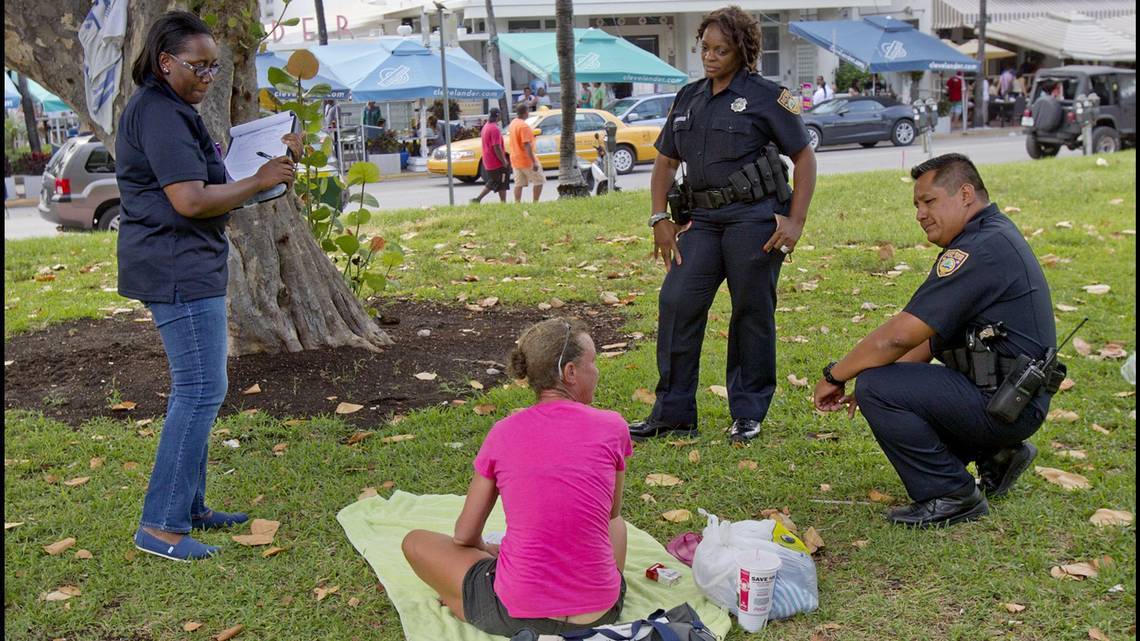In an attempt to resolve an expensive ongoing dispute with Miami-Dade County, the Miami Beach City Commission convened for a special meeting to discuss a significant $10 million annual fine imposed on the city. The fine stems from the city’s failure to place a one percent homelessness tax measure on the ballot, which had been previously agreed upon with the county.

Originally, the agreement between the city and the county included a provision that would have provided funding for a neighborhood revitalization project, contingent on the inclusion of the homelessness tax measure in the election. However, the city ultimately decided to withdraw the tax measure, leading to the imposition of the substantial fine. This decision has sparked a costly penalty, prompting the special meeting as both sides work to address the financial consequences and reach a resolution.
At the core of the issue lies Miami Beach’s attempt to ease the tax burden on its residents and local businesses while also figuring out a way to settle its financial obligations with the county. The Miami Beach City Commissioners were faced with a difficult decision regarding whether to place the homelessness tax measure on the ballot, as required by the prior agreement with Miami-Dade County.
In a close vote, the commissioners decided, with a 3-4 outcome, to keep the tax measure off the ballot. This choice could potentially reduce the city’s annual penalty by half, offering some financial relief. However, the decision has not been without controversy. It has sparked significant public outcry, as many residents and local businesses express their dissatisfaction with the move, concerned about the long-term implications of the fine and the city’s efforts to balance its financial obligations.
The outcome has led to ongoing debate about how best to address the city’s homelessness issue while minimizing the economic strain on its community.
The new proposal, as explained by city officials, suggests redirecting funds from the city’s convention center hotel project to help resolve the financial issue. The hotel project, which is expected to begin generating revenue around 2025 or 2026, would serve as a key source of funding for this plan.
Under the proposal, the city would allocate $5 million annually for the first two years, totaling $10 million, to address the homelessness issue. After that initial period, the city expects to receive hotel tax revenue ranging from $4 million to $4.5 million per year over the following 15 years, providing a longer-term financial solution.
However, the proposal sparked a strong and emotional reaction from the public during the meeting. Residents expressed their frustration with how the homeless tax measure had been handled, voicing concerns over the city’s approach and the ongoing financial burden on the community. The intense public response reflected growing dissatisfaction with the decisions made and the perceived lack of a clear, effective plan to address homelessness in the area.
One resident raised concerns about the impact on democratic values, stating, “Voting is a cornerstone of our democracy. Removing a ballot initiative in the middle of an election, especially after over 20,000 residents have already voted, is a grave injustice.”
In response, Miami Beach Mayor Steven Meiner addressed these criticisms by recognizing the concerns of the residents, while also defending the commission’s decision and explaining the reasoning behind it.
The updated payment plan will now be submitted to the county commission for final approval before it can be fully implemented. At the time of reporting, county officials were unavailable to provide any comments or statements regarding the plan.


Comments are closed, but trackbacks and pingbacks are open.